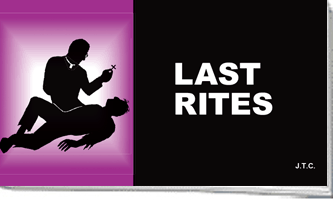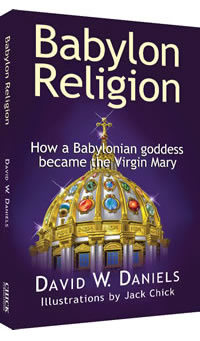Pope Declares Jubilee Year - Brings Back Indulgences
The year 2000 is a big deal for Roman Catholics. Pope John Paul II has declared it to be a year of Jubilee. Such "Jubilees," or "holy years," have been celebrated every 25 years since 1300 AD. This one takes on a special meaning since it falls on the turn of the millennium.
In addition, the pope has used the occasion to spotlight one of the most controversial Roman Catholic teachings, the granting of indulgences. This teaching springs from the belief in the "treasury of merit." This merit is stored up by the good deeds of Jesus, the Virgin Mary and all the other "saints" down through history and is controlled and dispensed by the pope and his priests. Part of the dispensing process is called the granting of indulgences.
The need for this merit is caused by the problem of purgatory. Catholicism recognizes several types of sinners. Those who do premeditated sin and show no interest in repenting are automatically condemned to hell. Other sinners who are willing to confess their sin can go to a priest who has power to forgive them. They are often given some ritual or good deed to perform to show they are really sorry.
But, that is not really the end of the matter. Even though the guilt of sin has technically been "forgiven," there remains some sort of "temporal" punishment or purging necessary before the individual is pure enough to enter heaven.
This purifying is accomplished by performing good deeds with a contrite heart while on earth and spending an unspecified time after death in the tormenting fire of purgatory. Thus, granting an indulgence is to officially transfer some of the treasury of merit to cancel time in purgatory.
These indulgences come in two sizes: partial and "plenary." Plenary indulgences wipe all punishment for past sin and can only be granted by the pope. Partial indulgences can be granted by Bishops and priests and only cancel part of the punishment for sin.
In this Jubilee year, the pope has designated certain actions to merit plenary indulgences. Just observing the Jubilee year in Rome wipes out all punishment up to date. While in Rome, a "pious pilgrimage" to a designated cathedral or basilica will get you another plenary but you are allowed only one a day. If you have been good since yesterday and don't need a new one for yourself, you can designate it for a loved one who is already in purgatory.
Not all of the focus of the Jubilee is on Rome. Visiting certain sites in the Holy Land during 2000 can also get you a plenary indulgence. People who cannot go to Rome or Israel can make a pilgrimage to a designated shrine or cathedral in their own country. Even sailors at sea are not forgotten. If, on June 2, 2000, they make contrite confession to a priest, take "Eucharistic Communion," pray before an idol, and "pray for the Pope's intentions," they can get a full plenary indulgence.
With 30 million pilgrims expected in Rome during 2000, it would have been impractical for the pope to overlook the cash benefits. Besides visits to places, other actions are designated as worthy of a plenary. These include other acts of personal sacrifice such as giving up smoking or drinking for a day or "supporting, by a significant contribution, works of a religious or social nature."
Martin Luther blew the whistle on this indulgence scam and triggered the Reformation. Unfortunately, he couldn't stop it entirely but today it is more subtle but just as deceiving. Its revival today by this pope proves that Roman Catholicism is still the prostitute church of Revelation 17 and 18. Soulwinners, we need to help the precious Roman Catholic people to "come out of her." (Rev. 18:4)
- See more articles on related topics:
- Catholicism
- Purgatory
- Prayer to Mary and Saints
Other Articles from March/April 2000:
- Booklet Defining KJV English Words Fits in Back of Your Bible
- Failed Prophecies Cast Doubt on All Watchtower Interpretations of Scripture
- Chick Mail Bag Mar-2000
- Media Ignores Brutal Murder by Homosexuals
- NIV Subtly Diminishes Character and Ministry of Jesus
- Prison Ministry Letters: March-2000
- Schools Pressured to Tell Students Sodomy is OK
- Tract Passing Tips- March 2000
- Some Public Schools Becoming War Zones
- Get the Word of God Out While You Can!
More on Catholicism:
Products of Interest:

Last Rites
When this Catholic dies, he learns that his church couldn't save him.-

Answers To My Catholic Friends
64 pages
A gentle witness you can give Catholics that deals with venerating images, purgatory, where popes go when they die, and more. -

Babylon Religion
224 pages
Learn how a Babylonian goddess became the Virgin Mary. An easy-to-read history of Catholicism's Babylonian origin. -

Alberto
32-PAGE, FULL COLOR COMIC BOOK - Alberto Series Part 1 - Here is how Alberto, as a Jesuit, helped destroy churches and ministries. But as he read the Scriptures, he saw that Catholicism couldn’t save.



